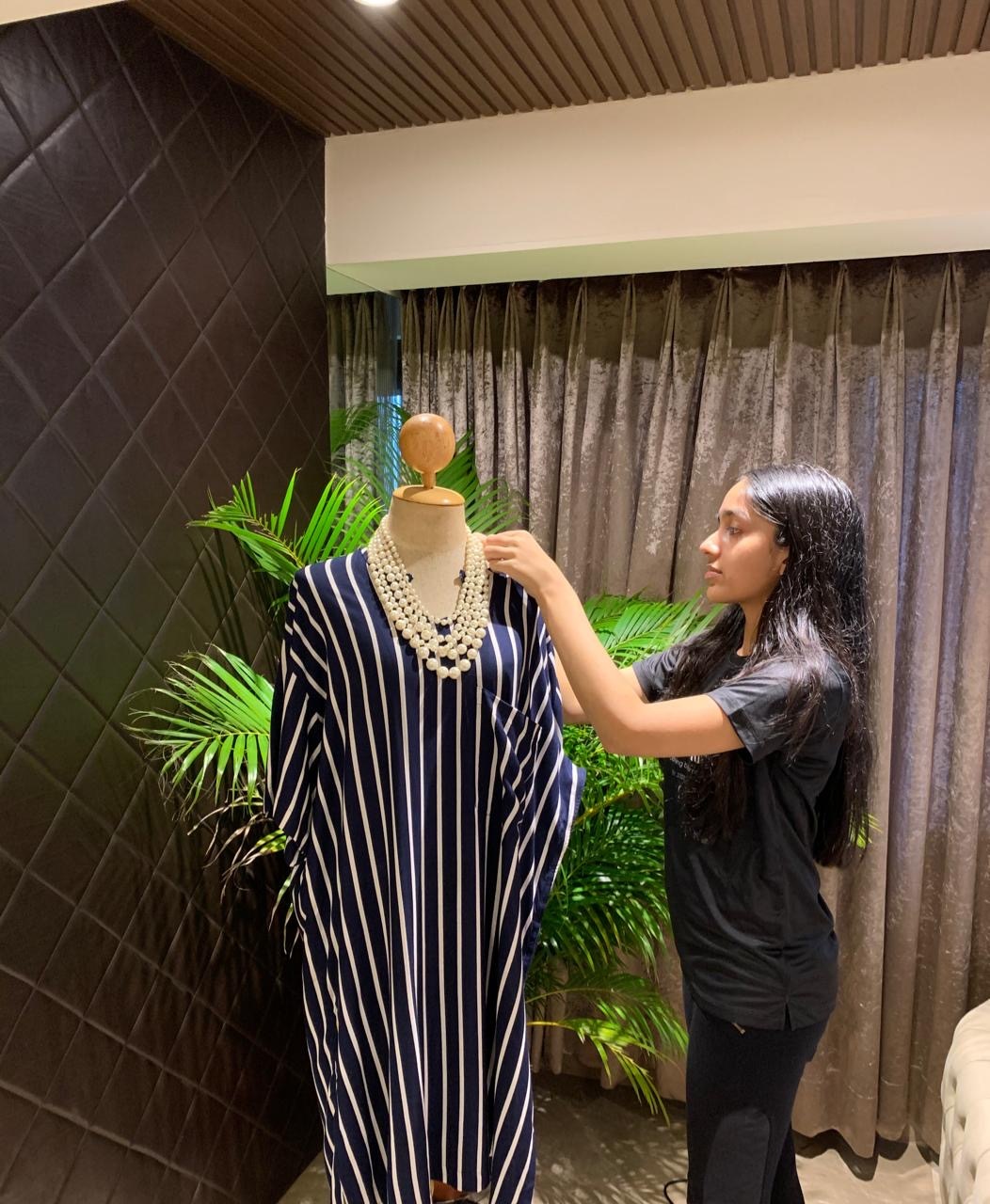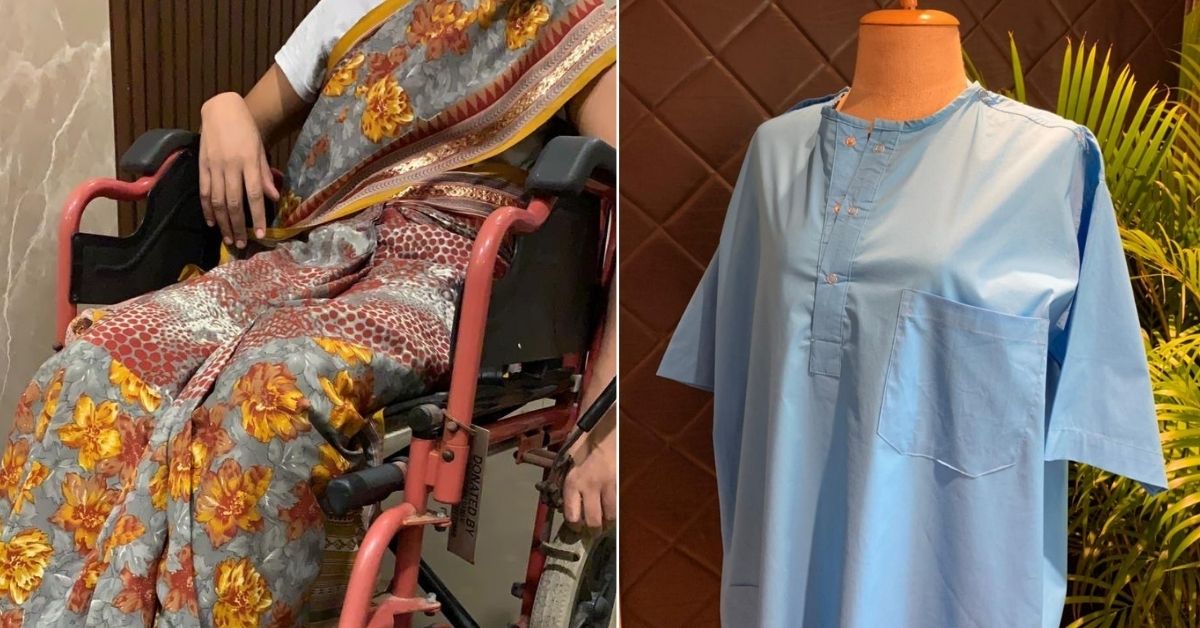A 2018 survey by the National Statistical Office reports that 2.2% of the population in India are people with disabilities. Despite such a large number, the services that cater to them are only a few. One service that is almost non-existent in the country is ‘adaptive clothing’.
Noticing this, Rainna Goel, a 15-year-old from Mumbai’s Jamnabai Narsee International School launched ‘Cur8ability’ – a clothing line for people with disabilities.
“All the dresses aim to cater to people with various disabilities including cerebral palsy, spinal cord injuries, among others. They are easy to wear and come with velcros or magnetic buttons,” says Rainna, in an interview with The Better India.

Within one year of launching her brand, she has created over eight designs and donated 40 pieces of clothing to Thunga Hospital in Mumbai.
Customising the clothes
In the summer of 2020, Rainna was assigned a project in her school. She was asked to work on anything she was passionate about.
“There are two things I’m most passionate about – fashion and philanthropy. I was thinking about how to combine the two. Through some research on the internet, I understood that people with disabilities need special kinds of clothing since they cannot move all parts of the body with ease. However, there are not many brands designing such clothes, even if there were, it was not affordable to all. So I decided to fill the gap,” says Rainna.
Before designing the clothes, Rainna approached the co-founder of a Pune-based NGO named EKansh, which works with people with disabilities. With her guidance, she was able to understand the general clothing requirements. She also spoke to orthopaedics and paediatricians to understand the needs of senior citizens and those recovering from fractures.
“Through these interactions with doctors, I understood that people with fractures in their arms cannot lift their hands and wear t-shirts. So they would need something easy to slide over their body and clip-on at the side or back,” says Rainna.
With these inputs in her mind, she began designing clothes such as t-shirts, shirts, dresses, pants and more. Once the designs were finalised, with help from her parents she purchased the necessary materials.
By August 2020, with help from migrant workers who were tailors, she got the clothes stitched.
“Within a week the clothes were ready and at first I had eight samples stitched to check the quality of the material. Then I took pictures, shared them on my social media handles, and tagged some NGOs and hospitals,” says Rainna.

Her first purchase was from Bhawna Singh, a resident of Mumbai who purchased an adaptive saree for her house help’s mother. Being over 70 years, the old lady had not worn a saree for several years since tying one was a hassle.
She says, “When my maid mentioned that they had some ceremony coming up but her mother could not wear a saree, I felt bad and decided to get her a velcro-fit saree. That’s when I stumbled upon Rainna’ brand. The saree was not too expensive but the material and stitching were really good. It required no effort of pleating or tying and was more like a slip-on dress. My maid’s mother was in tears after wearing it.”
After seeing Rainna’s social media posts, Thunga hospital in Mumbai also reached out to her and requested 40 pieces of clothing for their patients. This was distributed to those with disabilities and patients who come in for treatment.
Apart from fixed designs, Rainna is also willing to customise clothes depending on a user’s requirement.
If you wish to connect with her visit her website, social media handles, or send an email to cura8ables@gmail.com.
(Edited by Vinayak Hegde)
No comments:
Post a Comment